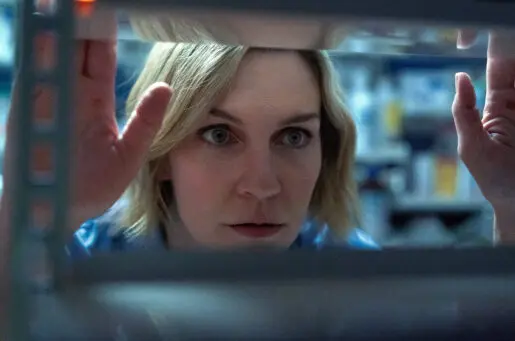Bioethics Forum Essay
The Scientific Good Guys: Let’s Save the U.S. Preventive Services Task Force
The news that Health and Human Services Secretary Robert F. Kennedy, Jr. cancelled the July 10 meeting of the United States Preventive Services Task Force—and may seek to change its membership—was especially awful. Although some would disagree, the task force, which evaluates preventive health measures for inclusion in Obamacare and other health insurance plans, has bent over backwards to be apolitical in its championing of evidence-based medicine. Revisiting the history of the task force and evidence-based medicine reminds us that while no scientific evidence is objective, there are trustworthy approaches that we should use to evaluate screening tests and other public health measures.
When I was in graduate school studying the history of medicine, a concept called the “social construction of disease” was in fashion. In brief, it posited that diseases did not exist objectively but were named and understood based on social and cultural factors. That is, the lenses with which we viewed conditions like alcoholism and mental illness determined how we described and assessed them. These examples, of course, were the easy ones. Trickier to see were things like chronic fatigue syndrome and Lyme Disease, which at first glance seemed to be scientific entities that could be assessed with enough data, but in truth still reflected the opinions of those who did the research and provided clinical care.
The concept of social construction is no longer used much, but a corollary is: There is no such thing as truly objective science or medicine. Any studies we do to assess the causes, diagnoses, and treatment of diseases necessarily involve choices—about who is enrolled, the variables considered, and the statistical methods employed to reach results.
This conclusion persisted, moreover, even with the rise of evidence-based medicine. Prior to the 1940s, the vast majority of medical studies were retrospective. They looked back over a series of cases of, say, a particular disease, and then drew conclusions about its diagnosis, treatment, and prognosis. The trouble was that such research was deeply flawed. Such data were invariably biased by the way subjects were chosen.
Fortunately, beginning with a study of streptomycin in the treatment of pulmonary tuberculosis published in 1948, researchers increasingly began to use randomized controlled trials (RTC). In such studies, subjects were studied prospectively with a control group to help prove that findings in the intervention group were “real.” Ideally, the studies were also blinded to avoid other biases by the researchers. Over time, methodological experts, often based in departments of clinical epidemiology, developed more sophisticated statistical techniques. For example, meta-analyses studied multiple RCTs for the same intervention, allowing investigators to better understand what did and did not work. These types of analyses gradually became known as evidence-based medicine, a term that first emerged at Ontario’s McMaster University in the early 1990s.
Still, evidence-based medicine experts were careful to explain that their work, while increasingly precise from a scientific perspective, was not purely objective. Rather, it was a blend of the current best evidence, clinical expertise, and patients’ values.
The task force, which was formed in 1984, is a nongovernmental agency subject to federal oversight. It evaluates the value of screening tests on healthy individuals at average risk for diseases or conditions and currently consists of 16 members who serve four-year terms. Most importantly, its members are generalist clinicians with special expertise in evaluating evidence (often termed methodologists). What they are not is specialists who have familiarity with the screening tests being evaluated and thus might come to the table with existing beliefs or biases. In this manner, the task force has strived to be apolitical, providing educated and thoughtful data-based recommendations using its expertise.
Examples of this advice include opposition to widespread prostate specific antigen testing, which the task force believed was not saving lives but rather causing unnecessary harm to screened patients; early strong support of colon cancer screening, including colonoscopies; varying recommendations on routine screening mammograms for women in their 40s, at times rejecting it but most recently favoring it; and discouraging preventive aspirin use in patients who are at average risk of heart attacks and strokes.
Despite its careful scientific analyses, the task force itself—and many of its specific decisions—have been criticized for decades. For instance, specialists have argued that they—as opposed to generalist clinicians—are more qualified to assess interventions with which they are familiar. Another criticism is that the task force is too conservative in its methods, still relying heavily on actual RCTs—as opposed to newer modeling studies, which are computer-based analytical methodologies that use statistical criteria to predict events and outcomes. Finally, others worry that after 2010, when task force decisions became the criterion for whether Obamacare funded specific screening tests, it became too political—liberalizing its normally careful assessments to ensure that more testing got covered by insurers.
But I would presume that almost all of these critics are upset with Kennedy’s interference with the task force. After all, this is an organization that has prioritized the best available science for decades and hired data-driven methodologists without known biases to review that science. You can’t get much better than that for apolitical.
It is hardly surprising that Kennedy has set his sights on the task force. Particularly with his rejection of proven vaccines, but also in questioning the viral cause of AIDS and opposing fluoridation of water, Kennedy has consistently challenged accepted scientific findings. Conservative critics have also charged the task force with being too “woke” on issues of race and gender.
And there are already a lot of precedents for disruption of the task force. Since Kennedy became HHS Secretary, hundreds of longtime employees of the National Institutes of Health and the Centers for Disease Control and Prevention have been fired. Among those recently fired are the 17 members of the CDC’s Advisory Committee on Immunization Practices. Kennedy plans to replace them with people of his own choosing.
It should be noted that the HHS press release announcing these firings said that the new members “will prioritize public health and evidence-based medicine.” But it is one thing to say you are performing evidence-based medicine and another thing to actually do it. For four decades, preventive task force members have, first and foremost, delved into the data using their superior skills, and then tried to craft the best recommendations based on these efforts. They don’t make things up. Although one might criticize specific decisions based on a different reading of the statistics, the last thing one can charge the task force with is having an overriding political agenda. But, as has happened with the new proposed members of the Advisory Committee on Immunization Practices, many of whom are vaccine skeptics, a newly constituted task force would likely have just that.
It was enlightening to explore the complicated meanings of a term such as “objectivity” in graduate school. But in the real world, certain data are better than others and should be used to craft policies about screening and other preventive services. Our health depends on it.
Barron H. Lerner, MD, PhD, a professor of medicine and population health in the Division of Medical Ethics at New York University Langone Health, is the author of The Good Doctor: A Father, a Son and the Evolution of Medical Ethics. He is a Hastings Center fellow. X: @barronlerner














excellent succinct summary- this is why historians are invaluable! Kudos Barron- thanks for your opinions!
I appreciate and agree with the main points in this essay about the value of the USPSTF. However, Dr. Lerner’s discussion of evidence-based medicine is simply incorrect. Referring to meta-analyses, Dr. Lerner states, “These types of analyses gradually became known as evidence-based medicine”. This is incorrect. Sackett and Guyatt (from McMaster) defined evidence-based medicine as “the conscientious, explicit, and judicious use of current best evidence in making decisions about the care of individual patients.” In some cases, the best evidence might be a meta-analysis, while in other situations, the best evidence might be research that used a different study design. Indeed, Guyatt and colleagues spearheaded an entire series in JAMA (“Users’ Guide to the Medical Literature”) devoted to evaluation of research based on different study designs. It is unfortunate that Lerner perpetuates a myth about evidence-based medicine that was debunked years ago.